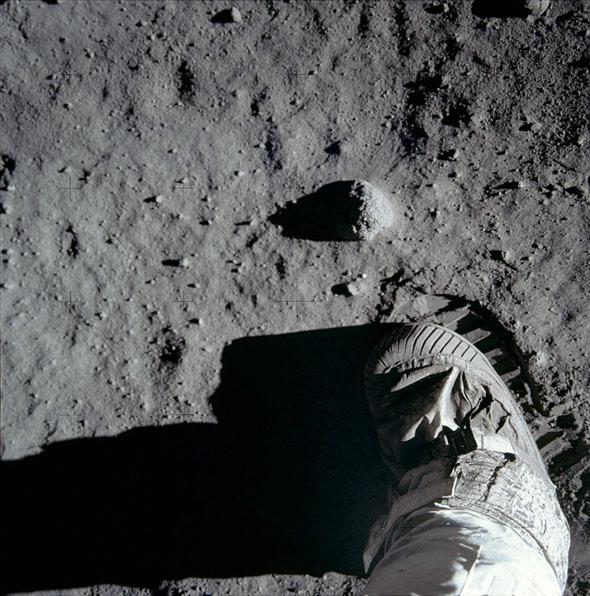Forty-five years ago today—and for the first time in human history—human beings set foot upon another world.
It was one of the proudest moments in America’s history, arguably the proudest. Despite being initially motivated by small-minded territoriality, it ironically brought our planet together, with people all over the world watching breathlessly as Neil Armstrong placed his boot on the desolate surface of the Moon.
Every year on this anniversary I reflect a bit on what happened then, how it affected me, and what it means today.
Some people fret over whether it was all worth it, taking this one small step. I have no such doubts; we are better as a species for having ventured into space. The evidence for this is overwhelming, from learning about our planet (and the dangers to it), to the very nature of humanity’s need to explore that is so fundamental to our psychology.
Venturing into space is not just something we can do. It’s something we must do.
And yet here we are. It’s been 45 years since we put men on the Moon and 42 years since the last men left it. We’ve not gone back since, at least, not with humans. Sure, we’ve made a lot of progress about living and working in space: We’ve launched several space stations, put more than 500 people into space, and built countless satellites and space probes. I’m fully aware of the awe-inspiring achievements we’ve made, and how much they mean.
But still, there is a hole in that picture. All of those people we’ve launched into orbit haven’t gone more than a few hundred kilometers above the Earth’s surface. The yawning chasm between the Earth and Moon hasn’t seen a human in it for over four decades.
Now, there’s a lot to be said for low Earth orbit. It is a fantastic resource for science, and I strongly think we should be exploiting it even more. But it’s not the goal. It’s like walking halfway up a staircase, standing on your tiptoes, and admiring the view of the top landing.
When I look back over the time that’s elapsed since 1969, I wonder what we’re doing. I remember the dreams of NASA, and they were too the dreams of a nation: Huge space stations, mighty rockets plying the solar system, bases and colonies on the Moon, Mars, and asteroids. Those weren’t just the fantasies of science fiction. We could’ve done them. Right now, today, those dreams could have been reality.
Instead, we let those small-minded human traits flourish. We’ve let politics, greed, bureaucracy, and short-sightedness rule our actions, and we’ve let them trap us here on the surface of our planet.
It needn’t have been this way, and it still needn’t be this way. There are those who still dream, who understand the call to space, and who are devoting their lives to make it reality. We’ve faced adversity before, and have not let it stop us.
I think we can overcome our own petty blindness. Sometimes we humans look up, not down, and see not just the Universe stretching out before us, but also our place in it.
We’ve done it before and we can—we must, and we will—do it again.
Per somnia et ardua ad astra.
